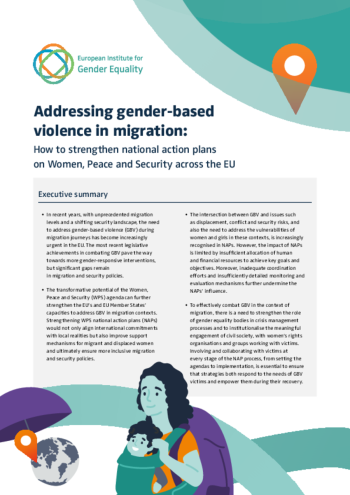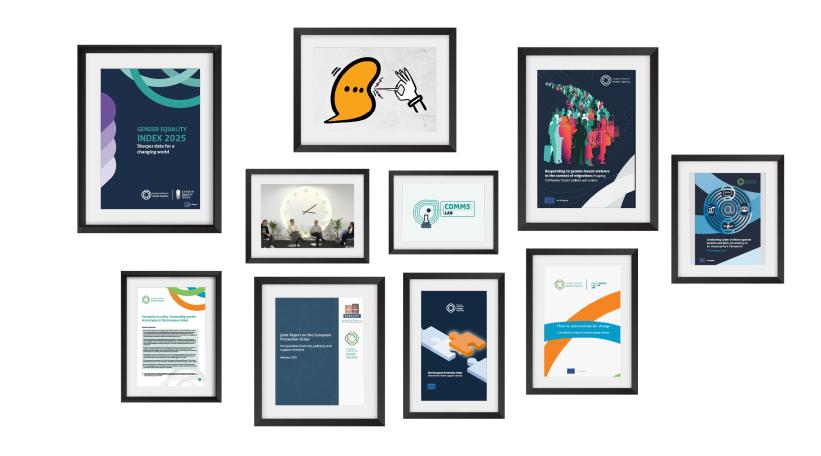
In recent years, with unprecedented migration levels and a shifting security landscape, the need to address gender-based violence (GBV) during migration journeys has become increasingly urgent in the EU. The most recent legislative achievements in combating GBV pave the way towards more gender-responsive interventions, but significant gaps remain in migration and security policies.
To effectively combat GBV in the context of migration, there is a need to strengthen the role of gender equality bodies in crisis management processes and to institutionalise the meaningful engagement of civil society, with women’s rights organisations and groups working with victims. Involving and collaborating with victims at every stage of the NAP process, from setting the agendas to implementation, is essential to ensure that strategies both respond to the needs of GBV victims and empower them during their recovery.




